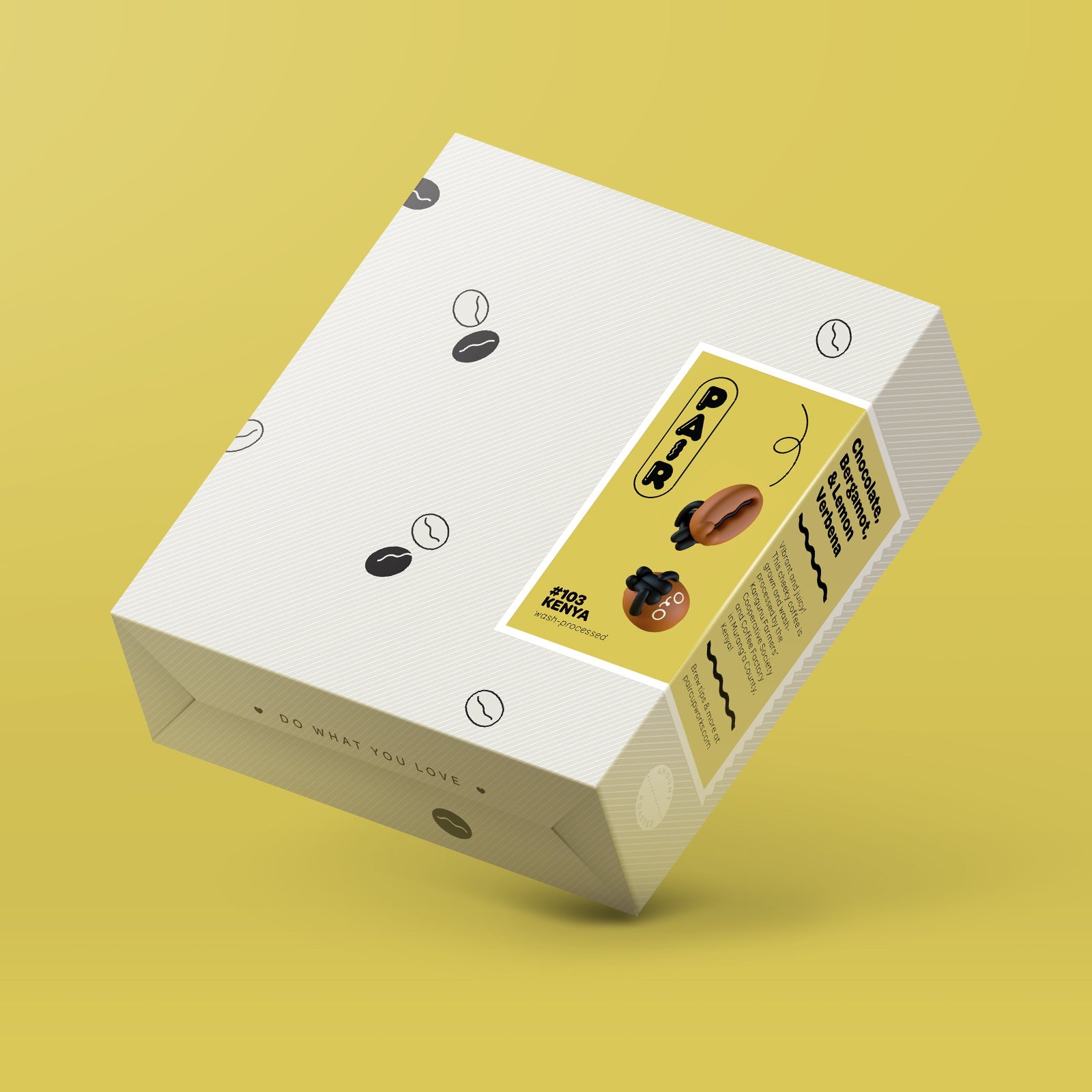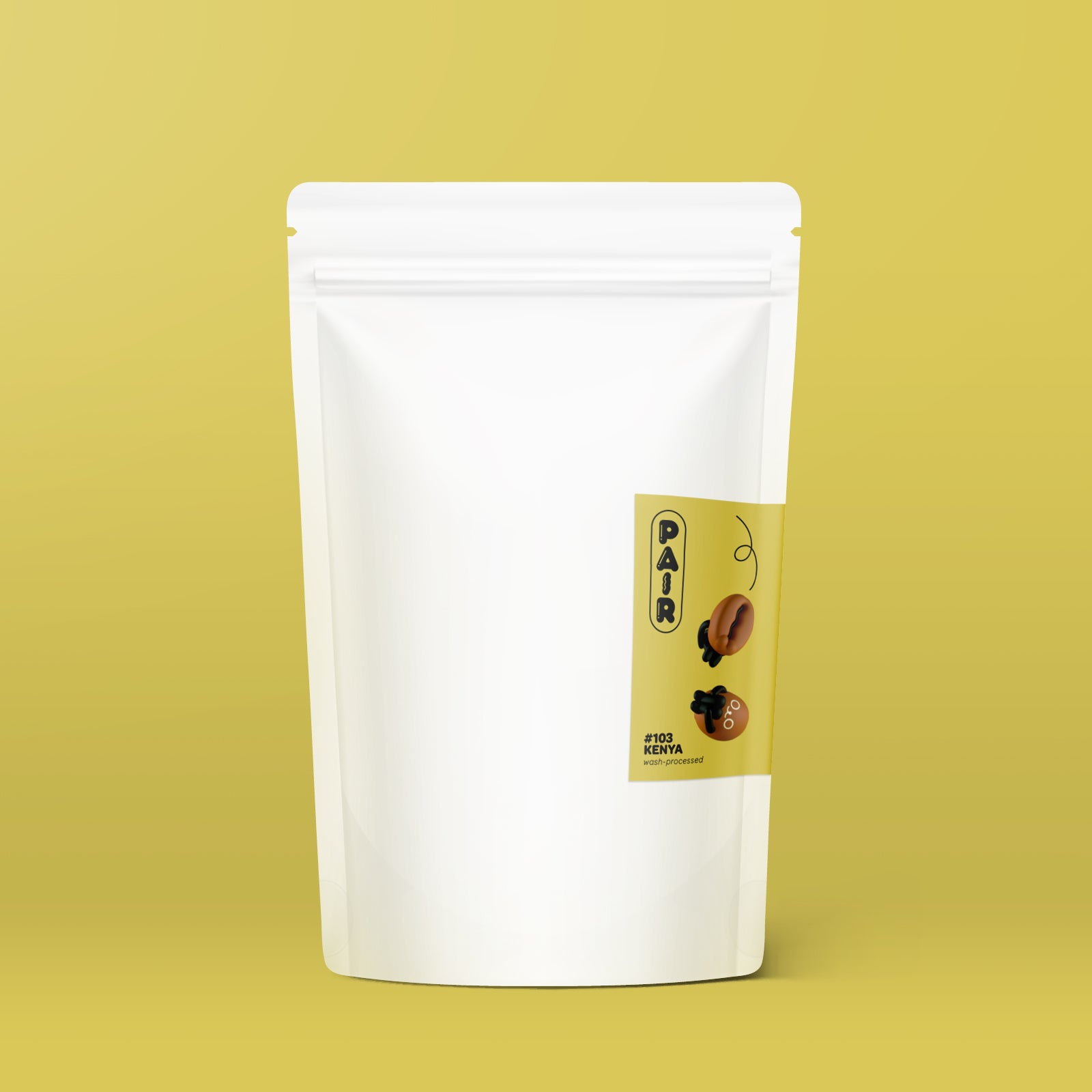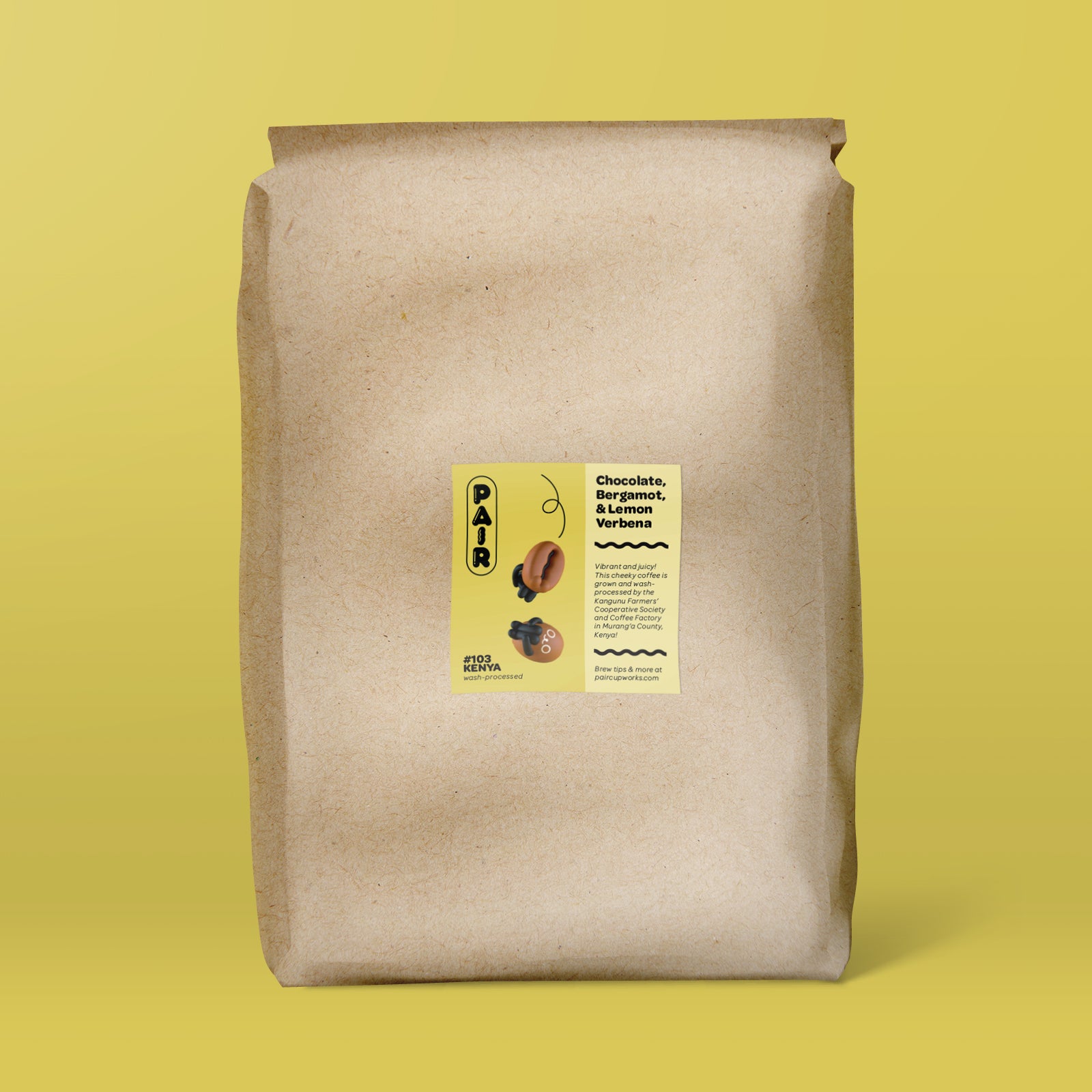Pair Cupworks
#103 Wash-Processed Coffee Beans from Kenya
#103 Wash-Processed Coffee Beans from Kenya
Regular price
$19.50 USD
Regular price
Sale price
$19.50 USD
Unit price
per
Couldn't load pickup availability
Chocolate, Bergamot, & Lemon Verbena -- Vibrant and juicy! This cheeky coffee is grown and wash-processed by the Kangunu Farmers’ Cooperative Society and Coffee Factory in Murang’a County, Kenya!
This is shaping up to be one of our favorite coffees of the year so far. Delicious and reminiscent of sweet tea, with many other subtle notes like dried cherry and black tea.
This is shaping up to be one of our favorite coffees of the year so far. Delicious and reminiscent of sweet tea, with many other subtle notes like dried cherry and black tea.
- Origin: Region Murang'a County, Kenya
- Altitude: 1600-1800 masl
- Grower/Producer: Kangunu FCS, Kangunu factory
- Processing: Wash-processed
- Variety: SL34, SL28, Ruiri 11
- Harvest Time: April-July
From the producer, Genuine Origin:
Kangunu Farmers’ Cooperative Society (FCS) and Coffee Factory (wet mill) is based in Murang’a County, an area famous for being the origin of the Mau Mau uprising in the mid-20th century. The Kangunu FCS established the Kangunu factory in 1998. An elected board manages the cooperative and the Secretary Manager oversees the group’s day-to-day activities with the help of a permanent staff.
Murang’a County enjoys cool temperatures of 16-26ºC and around 1,200mm of rainfall per year. The rich volcanic soil is perfect for growing coffee. In particular, farmers here grow SL-34, SL-28, and small amounts of Ruiru-11...
The coffee was primarily grown by smallholders who handpicked ripe cherries in the morning and delivered them to the Kangunu factory (wet mill). The coffee cherries were subsequently disc pulped between two rotating abrasive slabs with the help of clean water, then fully fermented overnight.
The wet mill manager inspected the fermented beans for optimal textures of broken-down fruit mucilage and parchment coating before they were thoroughly washed. After pouring the washed beans down a sloped tiled channel, the beans were pushed repeatedly by wooden shunts back to the top to separate lighter and heavier beans. This ensured that only the heavier, denser, higher-quality beans made it into this micro-lot.
Finally, this washed Kenyan coffee was sundried on raised beds. Consolidated parchment volumes were then delivered to dry mills where the parchment was hulled, graded according to size and density, warehoused, and warranted for sale via the Nairobi Coffee Exchange.
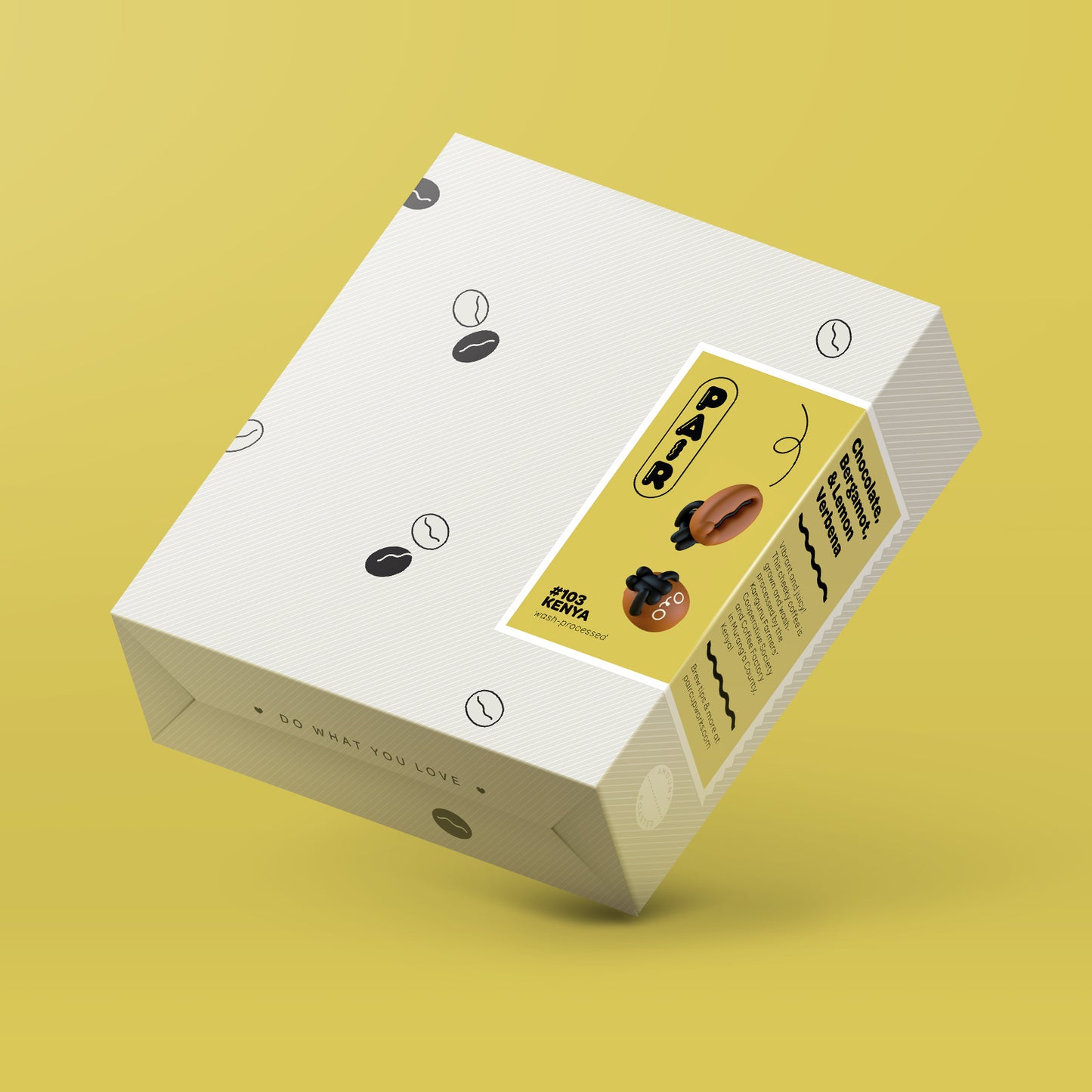
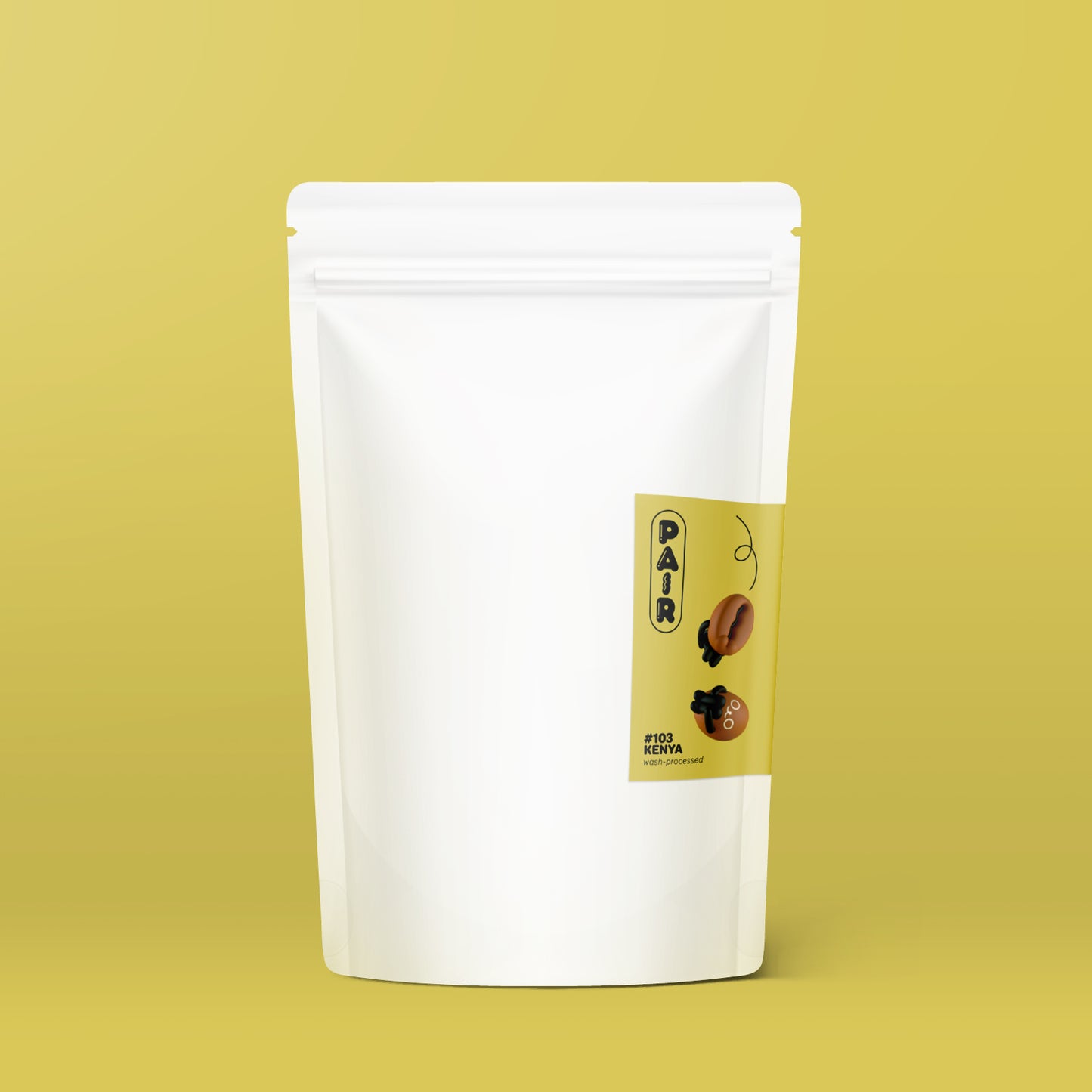
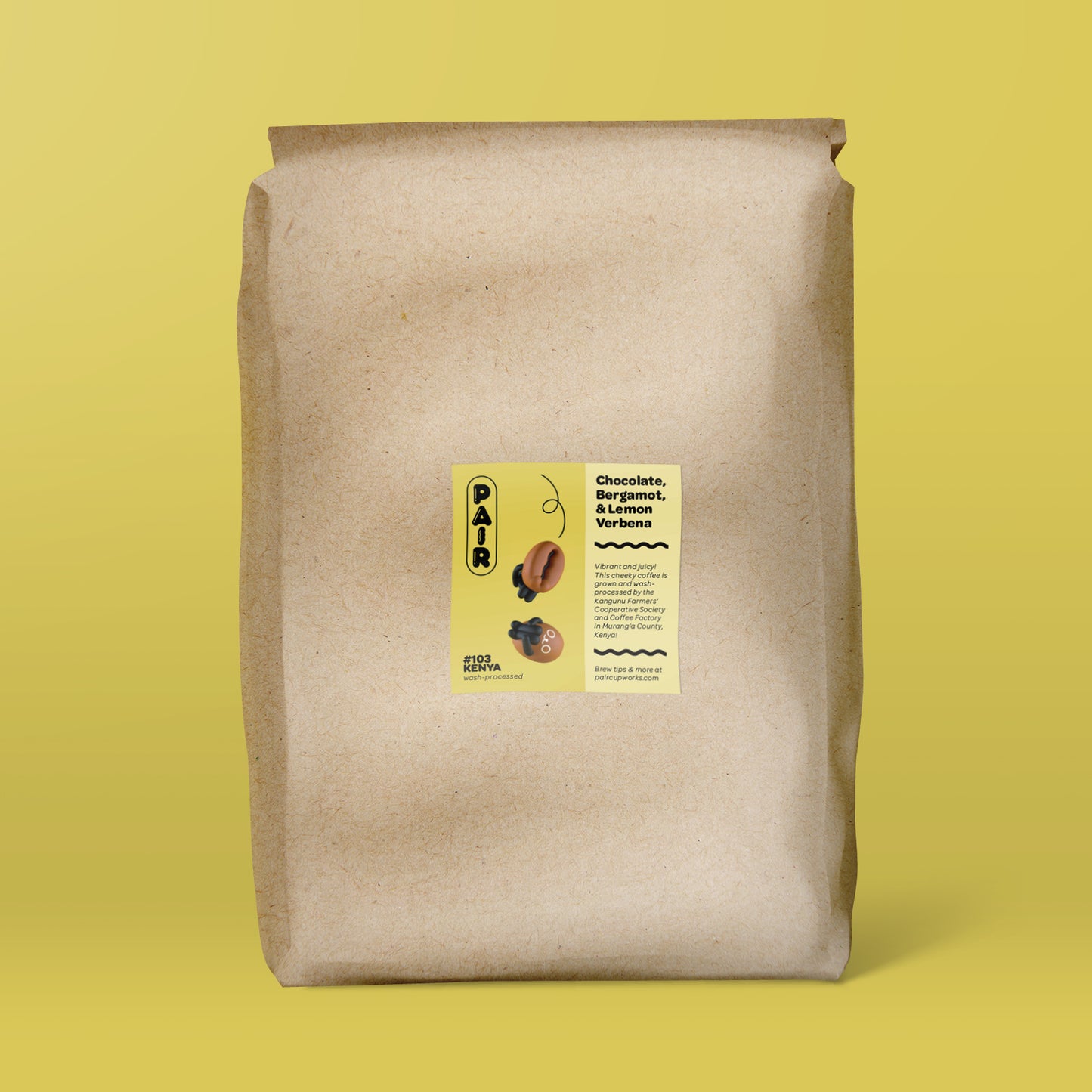

Is it sold out?
Sign up for our newsletter for to hear about new releases and restocked items! 👇

